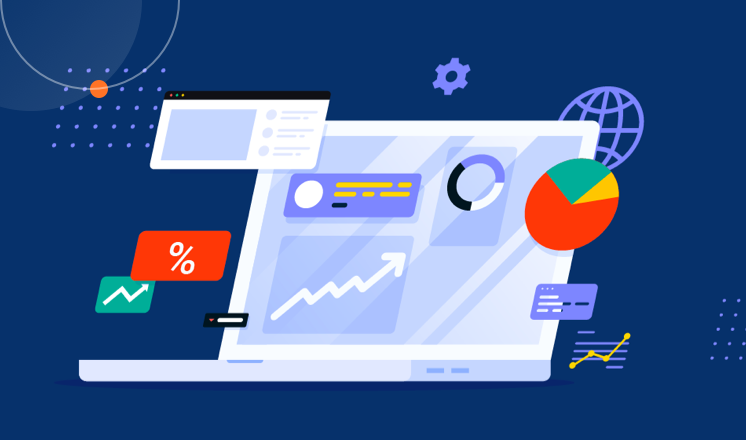
I. Introduction
1. Why would someone want to know where to get proxies?
Knowing where to get proxies is valuable for individuals and businesses for various reasons:
a. Anonymity and Privacy: Proxies allow users to mask their identity and hide their online activities from prying eyes. This can be useful for protecting personal information, maintaining privacy, and avoiding targeted advertising.
b. Bypassing Restrictions: Proxies enable users to access websites and online services that may be blocked or restricted in their region. By routing internet traffic through different locations, proxies can help bypass censorship and access geo-restricted content.
c. Web Scraping and Data Collection: Proxies are essential for web scraping, data mining, and automated data collection. By using multiple proxies, users can gather data from websites without being blocked or triggering security measures.
d. Enhanced Security: Proxies act as intermediaries between users and websites, adding an extra layer of security. By using a proxy, users can protect their IP address, making it more difficult for hackers to target their devices or track their online activities.
2. What are the potential advantages of knowing where to get proxies?
a. Access to a Wide Range of Proxies: Knowing where to get proxies allows users to access a diverse pool of proxies from different locations around the world. This variety is crucial for specific use cases, such as accessing region-specific content or conducting market research.
b. Performance Optimization: Different proxies have varying levels of speed and reliability. By knowing where to get proxies, users can choose those that offer optimal performance for their needs. This is especially important for tasks that require a stable and fast internet connection.
c. Cost Savings: Some proxy providers offer free or affordable proxy services. By knowing where to find these options, users can save money compared to purchasing premium proxies.
d. Customer Support and Technical Assistance: Reputable proxy providers often offer customer support and technical assistance to their users. By knowing where to get proxies from reliable providers, users can benefit from prompt support and guidance in case of any issues or concerns.
e. Compatibility with Different Applications: Different applications and software may have specific proxy requirements. By knowing where to get proxies, users can find providers that offer compatibility with the applications they intend to use, ensuring a seamless and hassle-free experience.
Overall, knowing where to get proxies provides users with a range of advantages, including enhanced privacy, unrestricted access to online content, improved security, and the ability to perform data-intensive tasks effectively.
II. Understandingwhere to get proxies
1. The role of "where to get proxies" is to provide individuals or businesses with information on different sources or methods for obtaining proxies. Proxies are essential tools that allow users to access the internet anonymously or bypass certain restrictions imposed by websites or networks. Knowing where to get proxies helps users find reliable sources to obtain these tools and effectively utilize them for their specific needs.
2. Understanding where to get proxies is important for several reasons:
a. Anonymity: Proxies allow users to mask their real IP addresses and browse the internet anonymously. This is crucial for maintaining privacy and protecting sensitive information from being tracked or monitored by websites, advertisers, or even hackers.
b. Bypassing Restrictions: Some websites or networks may impose restrictions on access based on geographical location or other factors. Proxies can help users overcome these restrictions and access content that would otherwise be inaccessible.
c. Web Scraping: Proxies are commonly used in web scraping, where automated software extracts data from websites. Knowing where to get proxies ensures that web scraping activities can be conducted in a legal and ethical manner, without violating any website's terms of service.
d. Internet Marketing: Proxies play a significant role in internet marketing, particularly in tasks such as competitor analysis, ad verification, and SEO monitoring. Understanding where to get proxies allows marketers to gather accurate data and make informed decisions to optimize their strategies.
In summary, understanding where to get proxies is important because it enables users to maintain anonymity, bypass restrictions, conduct web scraping legally, and enhance internet marketing activities.
III. Methods forwhere to get proxies
1. Learning where to get proxies can be done through various methods, such as:
a) Online research: Utilize search engines to find articles, forums, and blogs that provide information on proxy sources. Websites like Reddit and Quora often have discussions and recommendations from experienced users.
b) Online tutorials: Many websites and YouTube channels offer step-by-step tutorials on finding and using proxies. These tutorials can provide valuable insights and practical guidance.
c) Online courses: Some platforms offer courses specifically focused on proxies and their applications. These courses can provide in-depth knowledge and hands-on experience.
d) Networking: Engage with individuals or groups that are knowledgeable about proxies, such as online communities, forums, or social media groups. Networking can help you find reliable sources and receive personal recommendations.
2. Alternative methods for those interested in knowing where to get proxies include:
a) Proxy marketplaces: There are dedicated platforms where you can purchase proxies from verified sellers. These marketplaces often provide a variety of options, ensuring a reliable and secure proxy source.
b) Proxy providers: Many companies specialize in providing proxy services. They offer different types of proxies (residential, datacenter, mobile) and subscription packages to cater to various needs.
c) Proxy forums: Online communities and forums focused on proxies can be a valuable resource. Members often share their experiences, recommendations, and even sell proxies directly.
d) Proxy software: Some proxy management software includes built-in proxy sources or offers suggestions on where to find proxies. These tools can simplify the process of acquiring proxies.
3. When selecting a method for where to get proxies, consider the following factors:
a) Reliability: Ensure that the method or source you choose provides reliable and stable proxies. Unreliable proxies can lead to connection issues and disrupt your online activities.
b) Security: Prioritize methods that offer secure proxies, especially if you plan to use them for sensitive tasks. Look for sources that offer encryption and protect your data.
c) Reputation: Research and review the reputation of the method or source you are considering. Look for user feedback, ratings, and reviews to gauge the reliability and quality of the proxies.
d) Cost: Compare the pricing of different methods and sources. Consider your budget and the value you are receiving for the price.
e) Compatibility: Ensure that the proxies you acquire are compatible with your intended use. Different proxies have different capabilities and may be more suitable for specific tasks.
f) Customer support: If you anticipate needing assistance or have questions, consider methods or sources that offer reliable customer support. Good customer service can be crucial in resolving any issues that may arise.
IV. Selecting a VPN Service
1. Specific Features and Considerations when Finding Proxies:
a. Reliability: Look for proxies that offer a high uptime percentage and stable connection to ensure uninterrupted browsing or other activities.
b. Speed: Opt for proxies that provide fast connection speeds to ensure smooth performance while browsing or streaming content.
c. Location: Consider proxies from different geographical locations to access region-restricted content or to distribute traffic evenly across multiple locations.
d. Proxy Type: Decide whether you need a residential proxy (IP address provided by an Internet Service Provider) or a data center proxy (IP address provided by a data center server).
e. Protocol and Encryption: Ensure that the proxy service supports secure protocols like HTTPS and provides encryption to protect your online activities.
f. Compatibility: Check if the proxy service is compatible with the devices and platforms you intend to use it on.
g. Pricing and Plans: Compare pricing options and plans offered by different proxy providers to find the best value for your needs.
2. Steps to Solve the Question of Where to Get Proxies:
Step 1: Determine your specific requirements for using proxies, such as the purpose (browsing, data scraping, social media management, etc.), number of simultaneous connections, and desired locations.
Step 2: Research and compile a list of reputable proxy providers. Look for customer reviews, ratings, and feedback to assess their reliability and performance.
Step 3: Evaluate the features and considerations mentioned above for each proxy provider on your list. Narrow down your options based on how well they meet your requirements.
Step 4: Compare pricing plans offered by the shortlisted providers. Consider factors like the number of proxies allowed, bandwidth limitations, and any additional costs or hidden fees.
Step 5: Prioritize providers that offer free trials or money-back guarantees, as this allows you to test their proxies before committing to a long-term plan.
Step 6: Make a final decision based on your evaluation and select the proxy provider that best fits your needs and budget.
Step 7: Sign up for the chosen proxy service and follow their instructions to set up and configure the proxies on your device or application.
Step 8: Test the proxies to ensure they are working correctly by visiting websites or performing other activities that require a proxy connection.
Step 9: Monitor the proxy performance and consider switching to another provider if you encounter any issues or if your requirements change over time.
V. Legal and Ethical Considerations
1. Legal aspects:
- The use of proxies is generally legal, as they serve various legitimate purposes such as ensuring online privacy or accessing geo-restricted content.
- However, using proxies for illegal activities such as hacking, spamming, or unauthorized access to networks is strictly prohibited.
Ethical concerns:
- Respect for the terms and conditions of websites: Some websites explicitly state that the use of proxies is not allowed. It is important to respect these guidelines to maintain ethical behavior.
- Privacy and consent: When using proxies, it is essential to ensure that personal data or information of others is not compromised without their consent.
- Responsible use: Proxies should not be used to engage in malicious activities, spread misinformation, or infringe upon the rights of others.
2. Lawful and ethical approach after knowing where to get proxies:
- Read and understand the terms of service: Before using a proxy, carefully review the terms and conditions to ensure compliance with legal and ethical guidelines.
- Use proxies for legitimate purposes: Proxies should be used for legal activities such as bypassing censorship or accessing geo-restricted content, without infringing upon the rights of others or engaging in illegal activities.
- Respect website guidelines: If a website explicitly prohibits the use of proxies, it is important to respect their rules and seek alternative methods to achieve your goals.
- Protect privacy and consent: When using proxies, be mindful of privacy concerns and respect the consent and rights of others. Avoid accessing sensitive information without proper authorization.
- Practice responsible online behavior: Use proxies responsibly by not engaging in activities that may harm individuals, organizations, or networks. Uphold ethical standards and be mindful of the impact of your actions.
By following these guidelines, individuals can ensure that their use of proxies remains lawful and ethical, respecting both legal restrictions and the rights of others.
VI. Practical Use Cases
1. Bypassing internet restrictions: In certain countries or organizations, internet access might be restricted or certain websites might be blocked. By using proxies, individuals can circumvent these restrictions and access the content they need.
2. Protecting online privacy: Proxies can help mask a user's IP address, making it difficult for websites and online services to track their online activities. This can be especially valuable for individuals who want to maintain their privacy and protect their personal information.
3. Web scraping: Researchers, data analysts, and marketers often use proxies for web scraping purposes. Proxies allow them to access and extract data from multiple websites without getting blocked or triggering security measures.
4. Ad verification: Advertisers and marketers use proxies to verify the placement and visibility of their online ads. By using proxies, they can simulate different locations and check if their ads are displayed correctly in various markets.
5. Sneaker or ticket purchasing: Proxies are commonly used in the sneaker and ticket resale market. By using proxies with multiple IP addresses, resellers can increase their chances of buying limited-edition sneakers or event tickets before others.
6. SEO monitoring: SEO professionals use proxies to monitor search engine rankings from different locations. By using proxies, they can simulate searches from various locations and gather accurate data about their website's performance in different markets.
7. Gaming: Some online games impose restrictions based on geographic location. Players can use proxies to bypass these restrictions and access game content or servers that are not available in their region.
8. Security testing: Organizations use proxies to conduct security tests on their networks and websites. By simulating different IP addresses, they can identify vulnerabilities and improve their security measures.
9. Social media management: Social media managers often use proxies to manage multiple accounts on platforms like Instagram, Twitter, and Facebook. Proxies allow them to control and post content from different IP addresses, giving the appearance of managing accounts from various locations.
VII. Troubleshooting and Common Issues
1. Typical challenges and obstacles:
a) Lack of knowledge: One of the main challenges people face while learning where to get proxies is a lack of understanding of what proxies are and how they work. This can make it more difficult to navigate the various options available.
Solution: To overcome this challenge, individuals can start by researching and familiarizing themselves with the basics of proxies. Online resources such as articles, tutorials, and videos can provide valuable insights and help in building a foundational understanding.
b) Technical complexity: The technical aspects of setting up and using proxies can be overwhelming for beginners. Terms like IP addresses, protocols, and authentication methods may seem confusing initially.
Solution: It is important to break down the technical aspects into smaller, more manageable chunks. Taking it step by step and gradually experimenting with different proxy options can help individuals overcome this challenge. Additionally, seeking guidance from online forums, communities, or even consulting with experts can provide valuable assistance.
c) Finding reliable sources: With the increasing demand for proxies, there are numerous sources available, making it challenging to identify reputable and trustworthy providers. Falling for scams or unreliable services can result in security risks or wasting money.
Solution: Thorough research is crucial to find reliable sources. Reading reviews, checking user feedback, and comparing different providers can help in making an informed decision. Seeking recommendations from trusted sources or communities that specialize in proxies can also be beneficial.
2. Specific issues and common difficulties:
a) Proxy compatibility: Different proxies have varying compatibility with different devices or applications. Some proxies may not work with certain browsers or platforms, leading to inconvenience and frustration.
Solution: Before choosing a proxy service, it is important to ensure compatibility with the desired devices or applications. Most reputable proxy providers will clearly state the supported platforms and provide instructions on how to set up and configure the proxies for optimal compatibility.
b) Proxy speed and performance: The speed and performance of proxies can vary significantly, depending on factors like server location, server load, and the quality of the proxy service. Slow proxies can hamper internet browsing or hinder specific tasks.
Solution: Researching and comparing the performance metrics of different proxy providers can help in selecting faster and more reliable options. Some providers even offer trial periods or money-back guarantees, allowing users to test the speed and performance before committing to a long-term subscription.
c) Proxy restrictions: Certain websites or online services are designed to block or restrict access to users using proxies. This can be a significant hurdle for individuals who rely on proxies for specific purposes, such as web scraping or accessing geo-restricted content.
Solution: Opting for proxies that offer a wide range of IP addresses or rotating IP addresses can help overcome restrictions. Additionally, using advanced proxy management tools or techniques, such as rotating user agents or utilizing residential proxies, can enhance the chances of bypassing restrictions effectively.
Overall, understanding the challenges and difficulties associated with learning where to get proxies can help individuals prepare and navigate through the process more effectively. Taking the time to research, seek guidance, and experiment with different options can lead to a successful proxy setup experience.
VIII. Ensuring Online Privacy and Security
1. Individuals can ensure their online privacy and security when looking for where to get proxies by following these practices:
a. Choose reliable and reputable proxy providers: Research and identify trusted proxy providers that have a proven track record of privacy and security.
b. Look for proxies with encryption: Ensure that the proxies you choose offer encryption protocols such as HTTPS or SOCKS5 to secure your data transmission.
c. Check for no-logs policy: Confirm that the proxy provider does not keep logs of your online activities, ensuring your privacy is maintained.
d. Use anonymous payment methods: Consider using anonymous payment methods like cryptocurrency to further protect your identity when purchasing proxies.
e. Enable additional security measures: Implement tools like VPNs or antivirus software to add an extra layer of security to your browsing experience.
2. After learning where to get proxies, individuals should implement the following best practices to maintain a secure online presence:
a. Regularly update software and applications: Keep your operating system, web browsers, and other software up to date to ensure you have the latest security patches and bug fixes.
b. Use strong and unique passwords: Create strong passwords that include a combination of letters, numbers, and special characters. Avoid reusing passwords across different platforms.
c. Enable two-factor authentication (2FA): Enable 2FA whenever possible to add an extra layer of security to your online accounts. This requires users to provide an additional verification code, usually sent to their mobile devices, in addition to their password.
d. Be cautious of phishing attempts: Be vigilant of suspicious emails, links, or attachments that may be phishing attempts. Avoid clicking on unfamiliar links or providing personal information unless you are certain of their authenticity.
e. Regularly back up your data: Create regular backups of your important files and data to protect against potential data loss or ransomware attacks.
f. Avoid public Wi-Fi networks: Public Wi-Fi networks can be insecure, making it easier for hackers to intercept your data. Whenever possible, use a trusted and secure network or consider using a VPN to encrypt your internet traffic.
By following these best practices, individuals can maintain a secure online presence even after learning where to get proxies.
IX. Conclusion
1. Main takeaways for readers seeking to understand where to get proxies:
a) Proxies act as intermediaries between users and the internet, allowing individuals to hide their IP addresses and browse the web anonymously.
b) There are various types of proxies available, including data center proxies, residential proxies, and mobile proxies.
c) Proxies can be obtained from proxy providers, either through free or paid options. Free proxies may have limitations in terms of speed, reliability, and security, while paid proxies offer more reliable and secure options.
d) Understanding the differences between proxy protocols, such as HTTP, HTTPS, SOCKS4, and SOCKS5, is crucial in selecting the right proxy for specific use cases.
2. Maximizing the advantages of knowing where to get proxies:
a) Enhanced online privacy and security: By using proxies, individuals can mask their IP addresses and encrypt their internet traffic, making it difficult for third parties to track their online activities.
b) Access to geographically restricted content: Proxies allow users to bypass geo-blocking, accessing content and services that are otherwise unavailable in their location.
c) Website testing and data scraping: Proxies enable individuals to gather data from websites without revealing their true identity or triggering IP-based restrictions.
d) Ad verification and brand protection: Proxies help businesses monitor their online advertisements, ensuring their ads are displayed correctly and protecting their brand reputation.
e) Market research and competitor analysis: By using proxies, individuals can collect data on competitors' websites, pricing strategies, and marketing campaigns, gaining valuable insights for their own business strategies.
f) Social media management: Proxies allow individuals to manage multiple social media accounts simultaneously, avoiding restrictions and maintaining account security.
g) E-commerce activities: Proxies enable individuals to automate tasks, such as price comparison, inventory monitoring, and product research, enabling more efficient e-commerce operations.
By understanding where to get proxies and leveraging their advantages, individuals can enhance their online experiences, protect their privacy, and unlock various opportunities in the digital realm.



